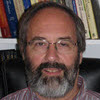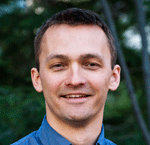Center for Fundamental Physics (CFP)
With Tabletop Experiments
 |
Gerald
Gabrielse
Board of Trustees Professor and CFP DirectorBoard of Trustees Professor Gerald Gabrielse, one of the world's leading practitioners of fundamental, low energy physics and a member of the National Academy of Sciences, has relocated from Harvard to Northwestern to be the founding director of the CFP. An award-winning researcher and teacher, Gabrielse has chaired both the Harvard Physics Department and the Division of Atomic, Molecular and Optical Physics (DAMOP) of the American Physical Society. He leads the international ATRAP Collaboration at CERN. The Gabrielse research group tested the most precise prediction of the Standard Model of Particle Physics using the most precisely measured property of an elementary particle, tested the Standard Model's most fundamental symmetry to an exquisite precision, made one of the most stringent tests of Supersymmetry and other proposed improvements to the Standard Model by measuring the electron EDM with ACME, and started low energy antiproton and antihydrogen physics. Gabrielse Research Group |
 |
Andrew Geraci
Associate ProfessorAssociate Professor Andrew Geraci has research interests that include tabletop tests for physics beyond the Standard Model, experimental gravitation, ultrasensitive force detection, and quantum optomechanics. Prior accomplishments include work at Stanford achieving the most stringent limits on corrections to the gravitational inverse square law at the 10 micron length scale, in an experiment using highly-sensitive cryogenic micro-resonators. The Geraci research group at Northwestern is developing new sensing techniques for experimental gravitational physics, involving laser cooled and trapped nanospheres which have achieved zeptonewton force sensitivity. Geraci leads ARIADNE, an international collaboration using NMR-based techniques to search for the QCD axion, a notable dark matter candidate. Geraci Research Group |
 |
Tim Kovachy
Assistant ProfessorAssistant Professor Tim Kovachy realized atom interferometers over macroscopic times and distances in work at Stanford, and used these for precise gravitational sensing and fundamental tests of quantum mechanics and gravity. The Kovachy research group at Northwestern will use a high-precision atom interferometric gravity gradiometer to search for deviations from the gravitational inverse square law, to look for new particles beyond the standard model (including light moduli associated with the compactified extra dimensions that can arise in string theory). The apparatus will also be used to measure Newton’s gravitational constant and to develop improved atomic gravitational sensors. The atom-interferometric gravitational wave detector being developed with the Mid-band Atomic Gravitational Wave Interferometric Sensor (MAGIS) collaboration will be sensitive within a frequency band between that of LIGO and the planned LISA, and will be able to search sensitively for dark matter. Kovachy Research Group |
 |
Brian Odom
Associate ProfessorAssociate Professor Brian Odom uses ion traps for fundamental physics and for other AMO research. His fundamental physics accomplishments include a Harvard measurement of the electron magnetic moment (for which he received the DAMOP PhD thesis prize), and dark matter research done while a Kavli postdoctoral fellow at the University of Chicago. The Odom research group at Northwestern is successfully developing methods to trap, cool and probe molecular ions. One motivation is to use these for fundamental physics measurements, including new searches for time variations of some of the fundamental constants of nature. Odom Research Group |
 |
Sarah Stidham Business Administrator sarah.stidham@northwestern.edu 847-467-6740 |
 |
Laura Nevins Program Coordinator laura.nevins@northwestern.edu 847-467-6678 |
© 2018 - Last Updated: 02/16/2026 - Disclaimer
